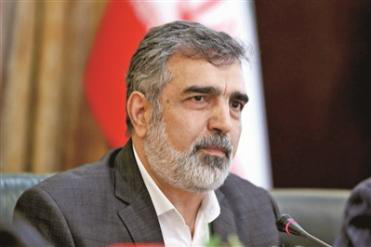
Iran announces to launch the research and development of new-generation centrifuges.
Recently, the US President Donald Trump rejected Iran’s offer to resume negotiations, and expressed that the US will not lift its sanctions against Iran. The Iranian President Hassan Rohani, however, announced that Iran will soon take the third step in reducing its commitments under the 2015 nuclear deal.
The new round of game between the US and Iran around the Iranian nuclear deal will function to deteriorate the bilateral relations between the two countries, and even trigger fluctuations and shocks in the international energy market as well as the security situation in the Middle East.
The US is bound to continue its "maximum pressure" policy
On September 4, the US Department of the Treasury issued a statement announcing that it will launch sanctions against the Iranian Islamic Revolutionary Guard Corps (IRGC) and its "Qods Force". The sanction list includes 16 entities, 10 individuals and 11 vessels.
The Treasury Secretary Steven Mnuchin claimed that there is evidence that Iran has provided millions of dollars’ worth of oil to the Syrian President Bashar al-Assad's government and the Lebanon’s Hezbollah through the above-mentioned oil transportation network.
At the same time, the US State Department has also offered a reward of 15 million US dollars to collect information on the financial services of the Iranian IRGC. In this regard, Iranian Foreign Minister Javad Zarif stated his belief through personal Twitter, condemning the US approach as "naked coercion”. Insiders of the Iranian government also said that "the US intention was to exert enough pressure on the Iran side, and does not care about to whom Iran sells oil, or how much it benefits".
Iran utilizes both “hard” and “soft”means
Shortly after the US announced a new round of sanctions, the Iranian President Hassan Rohani announced that Iran would lift restrictions on nuclear research and development, and accelerate the development of new-generation centrifuges. Prior to this, Iran has successively broken the upper limit of 300 kg of low-enriched uranium reserve and 3.67% of enriched uranium abundance.
However, some measures were taken by the Iranian side to ease the tensions both in words and actions. The Iranian President Rohani told the outside world that the Iranian actions are "peaceful and reversible", and Iran will within the framework of the International Atomic Energy Agency (IAEA) implement the "third step" initiative.
As for the European Union (EU) that acts as a mediator, Iranian high-levels have also shown understanding and tolerance. President Rohani expressed his satisfaction and hope for the progress of negotiations with the EU, saying that "the dialogue between the two sides is progressing, and the EU has 60 days to re-fulfill its commitments”.
It is reported that the Iranian side has released part of the crew on board the British tanker, the Steiner Empire that had been detained by Iran in mid-July, reflecting the sincerity of Iran to continue dialogue with all parties. It can be seen that the relevant practices of the Iranian government are far from touching the "red line" of the Iranian nuclear deal. Its real intention is not to completely overthrow the deal, but to seek feasible solutions through robust and controllable initiatives of "slight pressure" within the deal framework.
US policy toward Iran may not change in the short run
The US government has also shown some flexibility in policy. The US President Trump sent a positive signal to Iran through a third party, intending to hold a high-level bilateral meeting between the US and Iran.. In addition, he reiterated that the US does not seek to overthrow the current regime of Iran.
On the whole, the US policy toward Iran may remain unchanged considering the following factors in the short run.
First of all, differences in opinion still exist among the US government high-levels in specific Iranian nuclear issues. For example, in the case of France’s proposed $15 billion credit program for Iran, US President Trump was more positive, claiming that as long as the US is not responsible for funding, it will consider accepting the French proposal. However, Brian Hook, the US special envoy for Iran, was relatively cold, pointing out that the program is “not specific enough”.
Secondly, Israel, the core ally of the US in the Middle East, will become the biggest external obstacle to the settlement of the US-Iran stalemate. Israeli Prime Minister Benjamin Netanyahu has recently called on major countries to stop dialogue with Iran, saying that "it is not the time to talk to Iran, but to intensify pressure on Iran."
Last, but the most crucial, if the US refuses to thoroughly reflect on the effect of its "maximum pressure" policy, but blindly seeks its own "absolute security”, the final resolution of the Iranian nuclear issue will become unforeseeable, and the entire Middle East region will also be on the verge of large-scale military conflicts for a long time..
(The author is Ji Chen, a research with the Foreign Military Studies Department under thePLA's Academy of Military Sciences)













